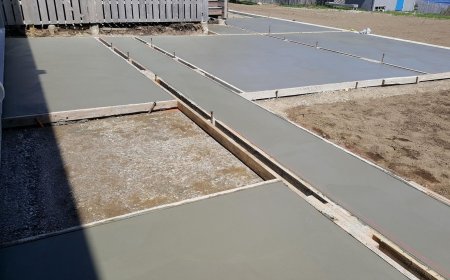Top 5 Traits of Successful Bidders in Construction
Winning bids in construction is not just about offering the lowest price. Many contractors submit bids, but only a few come out successful. The difference often lies in how they approach each bid estimate in construction from gathering accurate data to understanding the project scope and client expectations.

Introduction
Winning bids in construction is not just about offering the lowest price. Many contractors submit bids, but only a few come out successful. The difference often lies in how they approach each bid estimate in construction from gathering accurate data to understanding the project scope and client expectations. Successful bidders have developed traits over time that help them prepare stronger proposals, respond to bid documents effectively, and manage projects with greater confidence. Knowing these qualities can help contractors improve their chances and build a stronger business.
1. Attention to Detail
One of the most important traits of successful bidders is a keen attention to detail. Construction bids require reviewing many documents like plans, specifications, and contracts. Overlooking small items can cause errors in estimates or missed requirements. This can lead to unexpected costs or loss of trust from clients.
Successful bidders carefully check every aspect of the project. They measure quantities precisely and verify all costs involved. According to industry studies, errors in quantity takeoffs are a major cause of cost overruns in construction. This makes accuracy essential during the bidding process.
Being detailed also means organizing the bid clearly. Itemized costs, schedules, and assumptions should be easy to follow. This builds confidence that the contractor understands the project fully.
2. Strong Communication Skills
Clear communication is another key trait. Successful bidders do not just submit a proposal and wait. They ask questions to clarify unclear points and engage with the client during pre-bid meetings. This shows interest and professionalism. Good communication also means writing bids that are easy to understand. Contractors who explain their work clearly help clients compare proposals better. Sometimes, the difference between winning and losing is how well the bid presents the companys value beyond just price.
After submitting bids, reaching out to confirm receipt or to answer questions helps keep the contractor top of mind. Building relationships through communication often leads to repeat business.
3. Thorough Knowledge of Costs
Knowing actual costs for materials, labor, equipment, and overhead is essential. Many contractors fail because they guess or use outdated numbers. This can lead to underbidding and losing money or overbidding and losing the job. Successful bidders gather up-to-date price information and adjust estimates to reflect market conditions. For example, changes in steel or lumber prices can quickly affect a projects cost, especially when a detailed lumber takeoff is required for framing or structural work. Bidders who track these changes regularly make more reliable proposals.
Having good cost knowledge also means understanding indirect costs and risks. Adding proper contingencies protects the contractor from surprises during construction.
4. Ability to Assess Project Fit
Not every project suits every contractor. Successful bidders know which jobs match their skills, resources, and business goals. They avoid bids that are too large, too small, or too complex for their team.
Choosing the right projects reduces risks and increases the chance of success. Contractors who bid selectively can focus more on quality and client satisfaction. Research shows companies that pursue well matched work are more profitable over time.
Knowing your limits also means saying no when necessary. This preserves reputation and allows time for better opportunities.
5. Commitment to Continuous Improvement
Successful bidders learn from each bid, whether they win or lose. They keep records of past proposals, review feedback, and identify areas to improve. This habit helps refine estimating methods, presentation style, and client approach. Industry surveys show companies that apply lessons from previous bids improve their win rate over time. This process requires honesty and willingness to change.
Investing time in training, using estimating tools, or consulting experts also supports growth. Successful bidders keep developing skills to stay competitive.
How Outside Support Can Help
Many contractors find that managing all these traits alone is difficult. Outside help with estimating or bid preparation can be useful. Working with a team that understands construction costs and bidding processes allows the contractor to focus on project execution. A company that specializes in helping contractors with accurate estimates often improves the quality of bids. This can make a noticeable difference in tight competitions, especially for smaller firms aiming to grow. By outsourcing technical details, contractors increase their chances of submitting stronger proposals without overloading their resources.
Conclusion
Winning construction bids depends on more than just price. Successful bidders show attention to detail, communicate well, understand costs deeply, choose fitting projects, and keep learning from experience. Developing these traits takes time but creates a foundation for steady growth. Using outside support when needed helps maintain accuracy and focus. By building these qualities, contractors improve their chances of winning work that strengthens their business for the long term.



















































